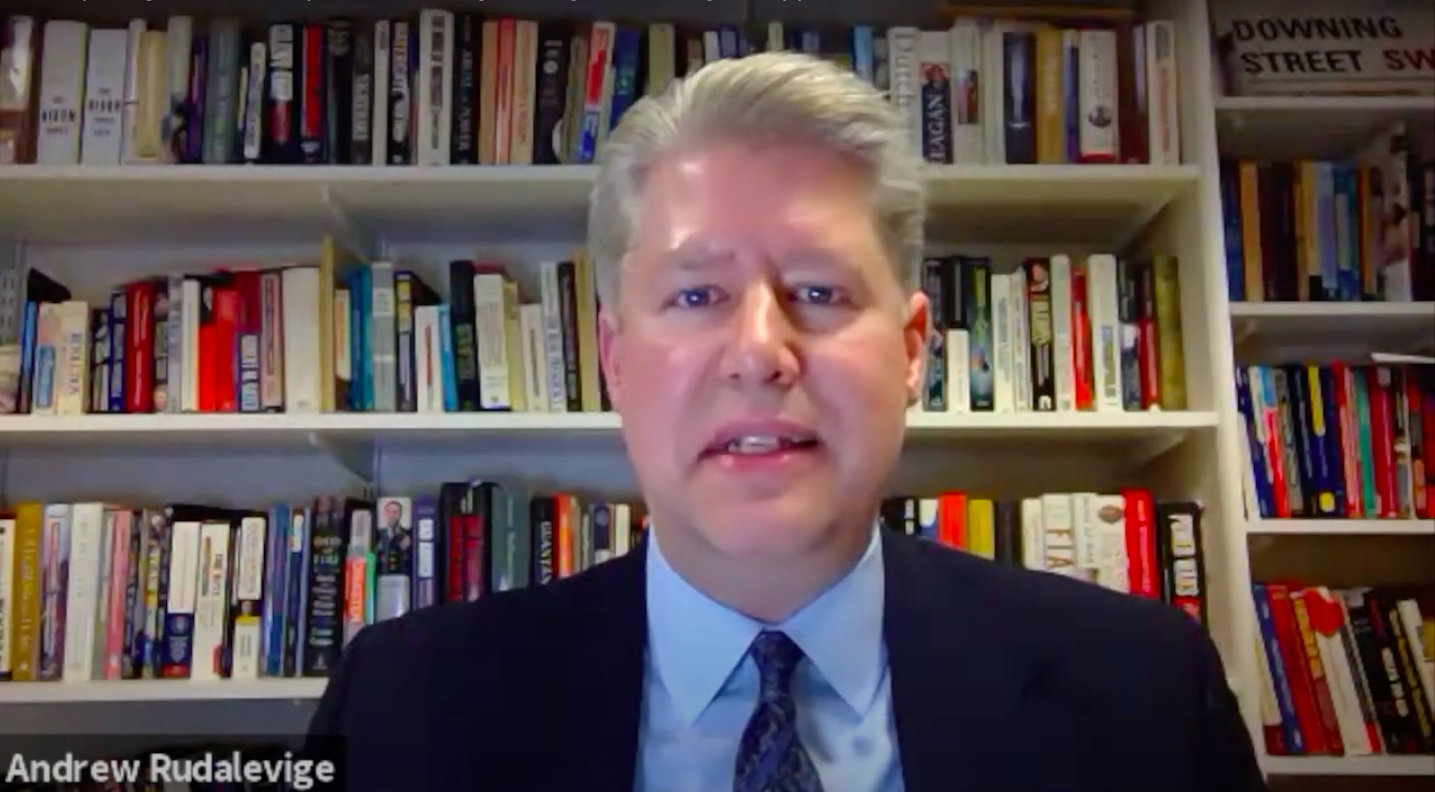Government professors consider potential election outcomes
October 30, 2020
 Mackey O'Keefe
Mackey O'KeefeOn Tuesday evening, in collaboration with the government department and Bowdoin Votes, the McKeen Center for the Common Good hosted a panel titled “Anticipating the Unanticipated: Puzzling Through What Might Happen Post-Election.”
Moderated by Sarah Chingos, director of the Bowdoin public service initiative, the panel featured Thomas Brackett Reed Professor of Government Andrew Rudalevige, Professor of Government Michael Franz and Assistant Professor of Government Maron Sorenson.
“This was part of a comprehensive approach by the College to address and support what we need to be thinking about this unique event in our American history,” said Chingos in a Zoom interview with the Orient.
During the event, the panelists emphasized the extraordinariness of this election.
“A good presidential election is [when] about 60 percent of eligible voters will turn out to vote. I will not be surprised if we [see] 70 percent of eligible voters turn out to vote, which would be the highest vote in a presidential election in over half a century,” Franz said.
Many states have had to adapt to early or absentee voting, raising concerns about when the country will have an official election result. The worst case scenario, warned Franz, might include accusations of voter fraud, ballot recounts in battleground states and candidates declaring victory before the final count has been tabulated. This, said Franz and Rudalevige, could lead to weeks of partisan bickering.
Despite this uncertainty on election night, national polling shows former Vice President Joe Biden in the lead. While some have become skeptical of polling after 2016, Franz explained that pollsters have eliminated much of the response bias that excluded non-college educated white voters.
“[Pollsters] have started to account for that, and that should mean the polls in 2020 are more accurate than they were in 2016 at the state level,” Franz said.
Close margins in key battleground states will not only determine when an election result can be confirmed, but they could also lead to lawsuits over voting fraud and voter intent. Courts have heard cases about “naked ballots” in Pennsylvania and absentee ballot deadlines in multiple states.
Rudalevige and Sorenson explored past contested election results, including the now-infamous Florida “hanging chad” controversy in the 2000 election, in which the state failed to establish a uniform method for determining voter intent from ballots with unclear choices.
In response, the Supreme Court in Bush v. Gore held that these inconsistencies across Florida violated the Equal Protection Clause of the Fourteenth Amendment. Sorenson argued that, if a similar situation happens this year, states should be better prepared.
“States would do well to have a clear standard articulated for any precinct that would engage in manual recount to determine voter intent,” Sorenson said.
Sorenson also discussed the complications and potential risks that could come with the Supreme Court’s involvement in determining the final election outcome.
“It would be very wise of [Associate Justice] Amy Coney Barrett to recuse herself, and it would be very wise to protect the Court’s overall institutional legitimacy,” she said.
Sorenson also explained that the Supreme Court could make itself, and the country, vulnerable, given that it relies on a “reservoir of goodwill” to enforce its decisions.
“Whenever this institutional legitimacy is eroded, that has an impact on the way its individual decisions are taken, especially if those individual decisions run a partisan vote count in the future,” she said.
Although these potential challenges are concerning, Rudalevige expressed optimism given our country’s long precedent of losing candidates conceding victory.
“One of the important things about American history is that we’ve been able to switch power between parties in a peaceful way since the very first switch, which was [in] 1800,” he said, referring to the transition of power from Federalist John Adams to Democratic-Republican Thomas Jefferson.
However, Rudalevige said, this year could be different.
“I’m not quite certain anyone in the current race will step back for the good of the country,” he said. “Possibly because they think the good of the country lies in their elevation to the presidency. And the disaster lies in the other direction in a way we didn’t see in 2000 or 1960.”
“[This election] is not just an academic exercise,” Franz said. “It is a very personal thing for a lot of people who feel like [they] want to move in a different direction in this country, or some people who feel like they want to continue in this direction.”
“As a result, [the College] is trying to do everything it can to prepare people for the election,” he added. “And let them know that the community of Bowdoin is there to support all students and all perspectives.”
Comments
Before submitting a comment, please review our comment policy. Some key points from the policy:
- No hate speech, profanity, disrespectful or threatening comments.
- No personal attacks on reporters.
- Comments must be under 200 words.
- You are strongly encouraged to use a real name or identifier ("Class of '92").
- Any comments made with an email address that does not belong to you will get removed.

Excellent article!